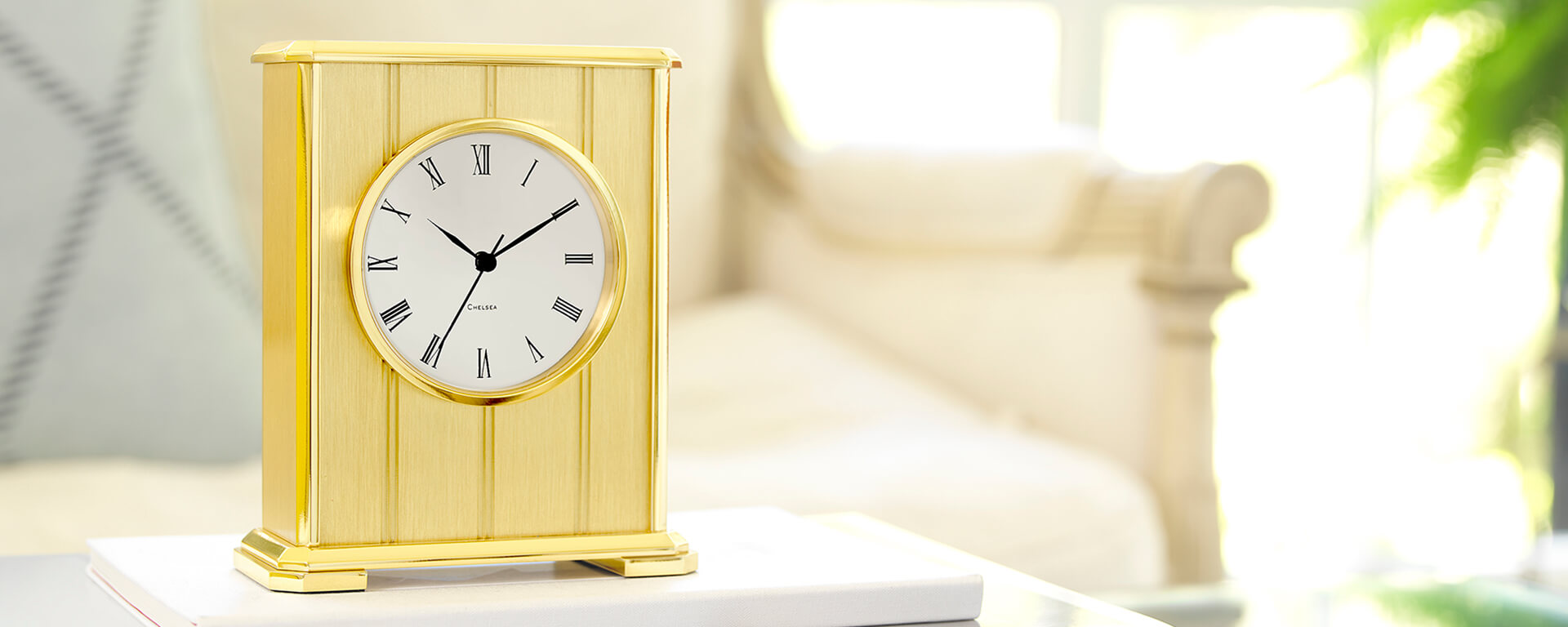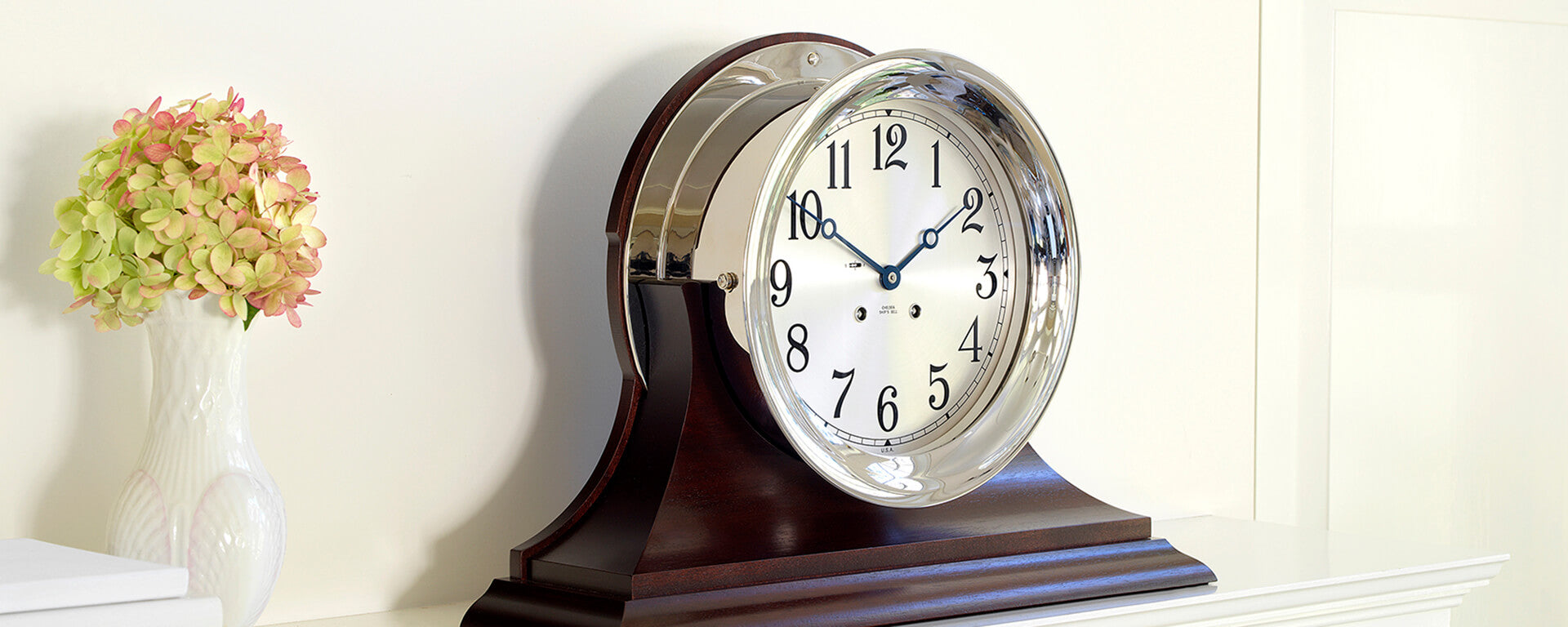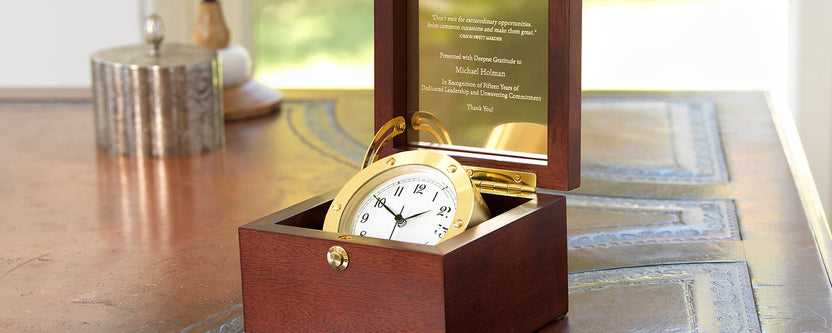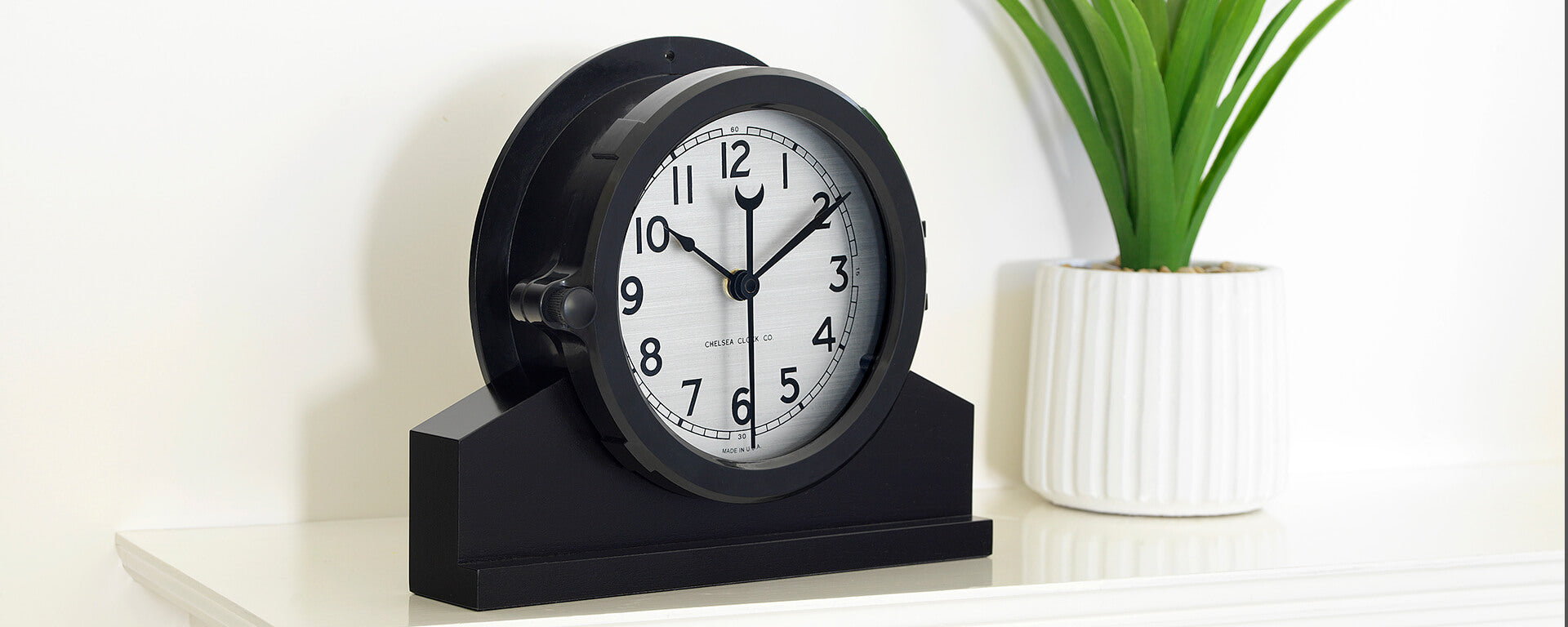How to Fix and Maintain a Chelsea Clock
While more intricate or complex clock repairs and restorations jobs should be left in the capable hands of a professional clockmaker, there are a few smaller maintenance tasks you can perform at home to keep your mechanical clock in stellar shape and minimize the need for premature or unnecessary repairs at the same time.
1. Wind Your Clock Regularly
Our clocks, which often come with personalized engraved logos, will run for more than one week on a single wind. Even so, we still recommend winding your clock once a week, while trying to keep to the same day every week (for example, every Monday morning) to ensure consistent timekeeping and to prevent the strike train from jamming.
2. Keep the Case Free of Dust and Fingerprints
Wipe the case often with a soft cloth to keep it free from dust and fingerprints, which, if left in place over time, can harm the finish. Refrain from using any polishes or cleaners on the hand-finished, lacquered case or dial as this will compromise the protective coatings. Most polishing pastes tend to leave a residue that has a corrosive effect on the metal of the case, and the dial, and can occasionally work its way into the movement, damaging it. If a polish is required for the outer casing, we recommend spraying a small amount of pledge onto a cloth first, but never directly onto the case itself.
3. Monitor Your Clock’s Ability to Keep Accurate Time
The regulator’s main function is to help fine-tune your Chelsea Clock’s mechanical timekeeping. Once the regulator is properly adjusted, the clock should tell accurate time for many years to come. If you discover that the clock needs frequent regulation, this might be a sign that you should send it off to a professional for service or repair.
4. Never Attempt to Oil Your Clock by Yourself
Never attempt to oil your clock on your own. There are better approaches to figuring out how to clean and lube a Chelsea regulator clock. We also have to warn you against spraying the movement with any type of lubrication, as this will cause more harm than good and could possibly harm your clock’s movement.
If and when you encounter any issues with your Chelsea Clock — from timekeeping to strike problems — resist the urge to try to fix it yourself. Your best course of action is to give us a call, as our dedicated and knowledgeable staff is here to address all of your needs. Submit an inquiry or call us at 800-284-1778 if you require anything from our expert team.
Our Clock Repair and Cleaning Process
Our technicians work on new and antique clocks at our factory in Chelsea, Massachusetts. Each clock we service is completely disassembled and thoroughly cleaned using an ultrasonic cleaning process, which removes old oil and debris from the movement. Our technicians then carefully inspect each component for damage, wear or breakage. We burnish and polish pivots, replace or restore worn bushing holes and service or replace mainsprings. The escapement (the clock’s “heartbeat”) is disassembled and cleaned as well. Our senior watch technician will then search for any damaged components that need repair or replacement.
Once the clock has been fully serviced, we reassemble the escapement and other components, accuracy-test your instrument for a minimum of two weeks, then offer our customers a two-year guarantee on all of our repairs.








